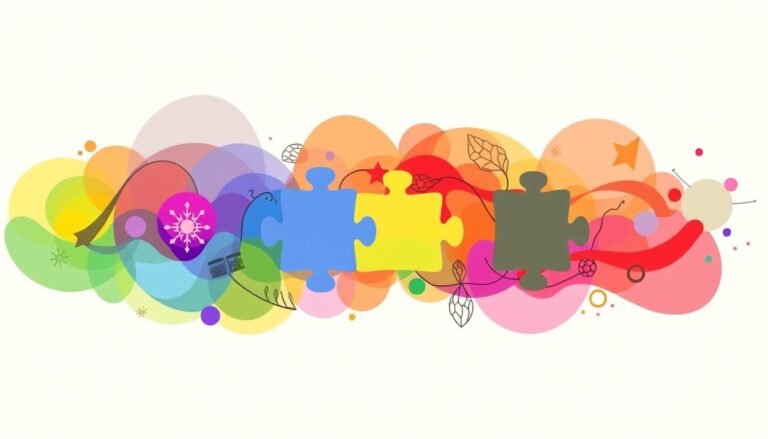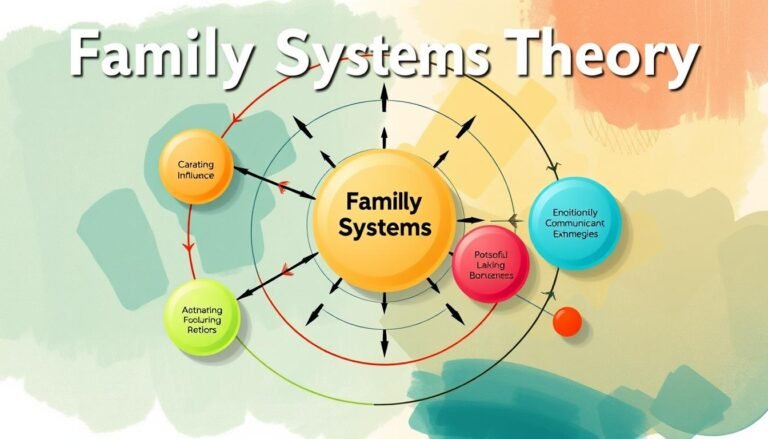Addressing the Mental Health Impact of the COVID-19 Pandemic in Ireland
In February 2020, the first COVID-19 case in Ireland marked a turning point. Before this, life was filled with joyful interactions and busy streets. However, when the first case appeared, it all changed. Discussion soon turned to nationwide concerns, leading to severe restrictions to tackle the virus’s spread. These measures had an invisible ripple effect on everyone’s mental well-being, as lockdowns loomed.
Soon, adults worked from their homes, kids stared at screens for school, and healthcare heroes fought on the front lines. Anxiety and stress became common. The Growing Up in Ireland survey showed a dramatic drop in mental health, especially among young adults and those who care for them. Interestingly, post-pandemic, the gap in mental well-being between different social groups seemed to disappear.
Amid these hard times, Ireland showed its strength. Communities came together, and mental health services quickly adapted. They offered teletherapy and online support to overcome physical distancing barriers. It’s essential that we learn from this crisis. By reflecting, we can prepare better for future mental health challenges.
Key Takeaways
- The COVID-19 pandemic in Ireland began on February 29, 2020, bringing unforeseen challenges.
- Significant mental health declines were noted, especially among young adults and principal carers.
- Females experienced a more pronounced negative impact on mental well-being.
- Socioeconomic disparities in mental health became less evident post-pandemic.
- Adapting mental health services, including teletherapy, was crucial for ongoing support.
The Arrival of COVID-19 in Ireland: A Timeline
In early 2020, COVID-19 started to spread worldwide. Its arrival in Ireland brought new and tough challenges. The nation’s response showed how vital mental health support is. It also highlighted the need for special COVID-19 mental health resources.
Initial Onset
By late February 2020, the first case of COVID-19 had reached Ireland. People were worried and unsure. The government acted fast, introducing measures to slow the virus. This included the start of various lockdowns and restrictions throughout 2020 and beyond.
Lockdowns and Restrictions
The lockdowns and restrictions changed life for everyone. Schools closed, working from home became common, and travel was limited. These steps were key in fighting the virus but had a big impact on mental health. Notably, there was a big increase in kids and teens needing help for eating disorders.
Impact on Daily Life
When cases dropped, restrictions eased, bringing a brief return to normal. But new infection waves brought back the cycle of changes. This constant back and forth hurt mental health. Anxiety, depression, and stress became more common. This is shown in the increase in mental health issues reported, especially for eating disorders.
The Psychosocial Footprint of the Pandemic
The COVID-19 pandemic has affected more than just those who got sick. It has touched healthcare workers, families, and the community at large. The need for strong mental health support has become clear as we all adapt to this new normal.
Mental Health Burden
In Ireland, the pandemic had a huge impact on mental health. More than half of the people said it affected them badly. They saw big jumps in anxiety, depression, post-traumatic stress, and loneliness.
Referrals to Child and Adolescent Mental Health Services (CAMHS) soared from 2010 to 2016. This highlights the ongoing mental health issues worsened by the pandemic. A significant portion of people who considered suicide during this time linked it to the stress caused by COVID-19.
Broader Psychosocial Effects
The pandemic brought about wider psychosocial challenges as well. Factors such as constant news coverage, financial troubles, and social limitations have all taken a toll. Life satisfaction in Ireland dropped significantly.
Over half of young children missed their friends and school. Many also had troubles with sleeping and more tantrums. These issues show that we need to focus on mental health policies and aids now more than ever.
Groups Most Affected by Mental Health Issues During COVID-19
The pandemic has greatly impacted mental health all around the world. Some groups, like young adults, main carers, and those with pre-existing health conditions, have felt the effects more. They struggled with the mental health effects of COVID-19 in profound ways. Let’s look into how these specific groups dealt with these challenges.
Young Adults
Studies show that young adults’ mental health took a hit during the pandemic. Those between 16 to 24 years old saw big jumps in feelings of depression and anxiety. In Northern Ireland, these numbers went up from 14% to 23% in just nine years. Not being able to see friends and disruptions in school added to their challenges. This shows the critical need for mental health help for young people in Ireland.
Principal Carers
Main carers, who look after family members, saw their mental health decline too. This was especially true for women. Research found that stress and anxiety went up for them. Despite efforts, mental health issues didn’t get better in wealthier or more educated careres. This points out the importance of mental health care for carers of all backgrounds.
People with Pre-existing Conditions
For those with health conditions like cystic fibrosis, the pandemic brought extra worry. Nearly half of them delayed going to hospitals due to the fear of getting the virus. Online visits became more common, with many finding them helpful. However, younger people with health conditions felt more anxious and tired. This highlights the need for special mental health programs for those with chronic illnesses.
Gender Disparities in Mental Health Impact
The COVID-19 pandemic showed that mental health issues hit women harder. The crisis made existing gender gaps worse. It highlighted the need for broad solutions to help both men and women cope better.
More Pronounced Effects on Females
During the pandemic, women felt more psychological pressure than men. Research shows unpaid work and extra caregiving duties were big reasons. They had to juggle work, care for others, and manage their homes.
Many women worked in areas hit hard by lockdowns. This led to more job losses or being put on hold. Losing jobs added stress and made them feel more anxious.
Understanding the Underlying Causes
Society and pandemic challenges created these mental health gaps. The British Academy suggests that these issues might last a while. Women’s heavy share of home chores and care work doesn’t help.
Research also shows that in homes with two earners, women still do most housework. This unfair setup adds a lot of pressure.
Helping women with their mental health should be a top priority. Support programs need to be specially designed for them. This way, we can improve mental health for everyone and share resources more fairly.
Socioeconomic Factors in Mental Health Outcomes
Your money and social standing affect your mental health. This is especially true during big crises like the COVID-19 pandemic. Many people face money worries and don’t know what will happen next. This has made a lot of people struggle with their mental health. It’s clear we need to find ways to help and support them. This includes teaching new skills to deal with stress.
Impact on Lower-Income Groups
The pandemic has hit poorer people harder. They face more mental health problems because of money struggles. In the UK, over half the people in poverty are from working families. The average debt for many was £9,400 in 2019. Losing jobs and changes at work made more people feel depressed and anxious.
It’s also worrying that more people started to harm themselves or think about suicide. About 3.8% of people said they did this. Those who are young or earn very little were most affected.
Changes in Socioeconomic Gradient Over Time
Surprisingly, the pandemic changed how wealth affects mental health. Now, even wealthier people need more help with their mental health. Records show that 27.7% of people felt depressed or anxious as restrictions eased. Women were even more likely to feel this way.
Finding ways to cope during the lockdown was crucial. Maintaining a stable income made a big difference. This underlined the need to protect people from losing their homes. Policies like fair wages for essential workers are very important too. Councils should also help by freezing rent and tax payments for those struggling.
Dealing with these challenges head-on is important. We must act fast using what we know to solve these problems. This includes making sure that people don’t get left behind in poverty.
Mental Health Support Services in Ireland
During the COVID-19 pandemic, Ireland’s mental health support faced big challenges. The services had to change fast to keep helping people. This showed that mental health services need more support and funding.
Online appointments played a major part in continuing care. But, they also showed we need better ways for people to get help. The pandemic proved Ireland needs to do more for mental health. It must invest more to care for its people’s mental health.
Studies found a decline in mental health after COVID-19. This is true for young adults and those who care for them. Young women saw their mental health drop more than young men did.
There was no difference in mental health struggles among young people based on money. But, there was a gap between better-off and worse-off mothers’ mental health before COVID. This gap shrank after the pandemic started.
It’s key to focus on mental health for specific groups like young adults and women. We must do more to spread awareness and fund services. Our efforts should target supporting these vulnerable groups.
- Increasing staff in community mental health teams and services for children
- Adding more counselors in health centers and specialist mental health teams
- Creating an online mental health info system for everyone to see
- Dealing with issues around money, jobs, and places to live to protect mental health
- Improving community and secondary mental health support for those at high risk
- Evaluating and possibly changing the Mental Health Act of 2001
- As well as removing Part V of the Emergency COVID-19 Act from 2020
By following these steps, Ireland can build a better mental health support system. These actions are crucial to provide good COVID-19 mental health resources and to raise mental health awareness. They will help meet the mental health needs of everyone, now and in the future.
Addressing the Mental Health Impact of the COVID-19 Pandemic in Ireland
The COVID-19 pandemic has seriously affected mental health in Ireland. Many people reported feeling worse during lockdowns. To fight this, the government and experts have suggested ways to improve mental health.
Government Initiatives
The Irish government is actively working to help with mental health struggles. They say more money should go into mental health services. They have even started campaigns to make people more aware and less afraid of talking about their mental health.
They did several important things like:
- More money going into mental health support services because more people need them now.
- Starting hotlines and online counseling for those who need help right away.
- Giving extra support to healthcare workers who faced a lot of stress during the pandemic.
Mental Health Reform Recommendations
Many experts have given advice on how to change mental health care in Ireland. They say Ireland needs a strong system that can handle tough times in the future.
Some big recommendations are:
- Adding more staff to mental health support services so everyone gets the care they need.
- Creating ways to check if the changes made are really helping. This means tracking what works and what doesn’t.
- Changing the laws to protect patient rights and meet the different needs of Ireland’s people.
- Making sure we keep using the good ideas we found during the pandemic in how we run mental health services.
By listening to these ideas, Ireland plans to build a strong system that keeps mental health a top priority in its recovery from COVID-19.
Coping Strategies for Mental Well-being During the Pandemic
During the pandemic, it was crucial to find good coping strategies for our mental health. People around the world faced new and tough challenges. This made it important to learn how to handle stress, depression, and anxiety well.
Practicing Mindfulness
Practices like meditation, deep breathing, and walking with focus are very helpful. Studies show that being mindful can lower feelings of sadness and worry. It gives us a strong mental base to deal with the pandemic’s impact. These activities help us feel centered and bring peace during uncertain times.
Maintaining Social Connections
Even with social distancing, it’s key to stay socially connected. Talking on the phone, meeting virtually, or using social media are ways to feel less alone. These actions help us feel we fit in and help others feel supported. They are very important for our mental well-being. They show us how vital it is to join with others when facing tough times like these.
Using mindfulness and staying social have been crucial for many during the pandemic. They help reduce stress both now and in the future. They are also important for our recovery after these difficult times.
Irish Mental Health Initiatives and Campaigns
Ireland is working hard to face the mental health impacts of the COVID-19 pandemic. The country is promoting awareness and enhancing services. The government and communities are using various projects to help people and build strong mental health.
National Awareness Programs
National programs are key in this effort. They continue the Connecting for Life plan to lower suicide rates and better access to help. The National Youth Strategy 2015-2020 outlined 50 ways to help young people with their mental health. These efforts show a dedication to help over the long term.
The National Youth Strategy 2015-2020 identified over 50 priority actions for improving the mental health of young people.
Schools have also joined in by adopting the “Well-being in post-primary schools” guide. It helps schools work on mental health promotion and avoids suicide. This is done by focusing on the well-being of the whole school.
Community Support Systems
Community support is crucial too. MyMind, for example, gave €1 million for 16,500 free therapy sessions. This is proof of real investment in mental health help.
In 2022, more help is on the way with €10 million for better mental health services. This will focus especially on kids and teens. Such initiatives add to existing work. They make mental health help easier and more effective.
Over 1,600 young people under 18 accessed treatment through a €4 million initiative to reduce waiting times for primary care psychology services.
All these steps show a deep commitment to mental health for all. They prove the value of actions on a national and community level. These steps are making Ireland’s mental health system stronger and more ready to face challenges.
Conclusion
The mental health impact of COVID-19 in Ireland is a key issue that needs focus. It has hit people, communities, and the entire healthcare system. Since the virus came, lockdowns started, and we all felt more stress, the need for change and help has become clear.
This article emphasized how different groups faced the pandemic. It focused on young adults and carers, pointing out gender and economic differences in their mental health. It showed young women faced more risks, and carers from wealthier, educated backgrounds also struggled.
The pandemic taught us a lot about the need for strong mental health care. In Ireland, efforts have begun to tackle these issues and promote well-being. By looking at many studies, this article shows we are at a key moment to improve mental health support.
As we look to the future, the lessons from this crisis will help us build better, more inclusive mental health care. It will guide us to create services that are stronger and kinder for everyone.
FAQ
What challenges did the COVID-19 pandemic introduce to Ireland?
The COVID-19 pandemic hit Ireland hard on February 29, 2020. It brought about lockdowns, closed schools, and limited travel. These actions greatly affected people’s daily lives and mental health.
How did the restrictions affect mental health in Ireland?
The necessary restrictions led to more anxiety, depression, and stress. These issues were especially heavy on young adults and those who care for others.
What groups were most affected by mental health issues during COVID-19 in Ireland?
During the pandemic, young adults, carers, and those with health issues faced big mental health hurdles. Among them, young women were notably at risk.
Did the COVID-19 pandemic affect men and women differently in terms of mental health?
Data showed that women faced tougher mental health challenges than men. This information shed light on the need for mental health support geared toward women.
How did socioeconomic status influence mental health outcomes during the pandemic?
Socioeconomic status closely tied to mental well-being showed variations. However, post-pandemic, this trend seemed to level out. This suggests that more people across different income levels suffered from mental health issues.
What is the state of mental health support services in Ireland?
Ireland’s mental health support system combines community and secondary services. It faced a surge in demand during the pandemic. The need for improved and expanded services became evident, highlighting past underinvestment.
What initiatives has the Irish government taken to address mental health impacts during COVID-19?
The Irish government is focusing on improving mental health in its recovery plans. It plans to increase staff, improve reporting, and update laws. These changes aim to safeguard mental well-being.
What are some coping strategies for maintaining mental well-being during the pandemic?
To stay mentally healthy, it’s important to practice mindfulness and stay connected, even through virtual means. These steps can help reduce the stress and loneliness of the pandemic.
What initiatives are in place to raise mental health awareness in Ireland?
Ireland has launched national awareness programs and strengthened local support systems. These efforts are designed to lessen the mental health impact of the pandemic. They aim to raise awareness and provide direct help.
Source Links
- Mental health and the COVID-19 pandemic | Irish Journal of Psychological Medicine | Cambridge Core
- Frontiers | Addressing mental health need after COVID-19: a systematic review of remote EMDR therapy studies as an emerging option
- Review of Ireland’s First Year of the COVID-19 Pandemic Impact on People Affected by Eating Disorders: ‘Behind Every Screen There Was a Family Supporting a Person with an Eating Disorder’
- Mental health in Ireland during the Covid pandemic: Evidence from two longitudinal surveys
- Mental health impacts of COVID-19 in Ireland and the need for a secondary care mental health service response
- Burnout in mental health services in Ireland during the COVID-19 pandemic | BJPsych Open | Cambridge Core
- (PDF) The Influence of the COVID-19 Pandemic on Mental Well-Being and Psychological Distress: Impact Upon a Single Country
- A Mental Health Pandemic? Assessing the Impact of COVID-19 on Young People’s Mental Health
- Impact of COVID-19 pandemic on health care system, work, and mental well-being of people with cystic fibrosis – Irish Journal of Medical Science (1971 -)
- The gender dimensions of mental health during the Covid-19 pandemic: A path analysis
- The gender dimensions of mental health during the Covid-19 pandemic: A path analysis
- Psychological impact of the COVID-19 pandemic on healthcare workers at acute hospital settings in the South-East of Ireland: an observational cohort multicentre study
- Mental health following an initial period of COVID-19 restrictions: findings from a cross-sectional survey in the Republic of Ireland
- International Journal of Environmental Research and Public Health
- The COVID-19 pandemic, financial inequality and mental health
- Mental health and the COVID-19 pandemic – Research Matters
- Perceptions of risk and coping strategies during the COVID-19 pandemic among women and older adults
- The impact of COVID-19 on young people’s mental health, wellbeing and routine from a European perspective: A co-produced qualitative systematic review
- 7.5 Mental health
- The impact of COVID-19 on health systems, mental health and the potential for nursing
- Mental Health Policy








